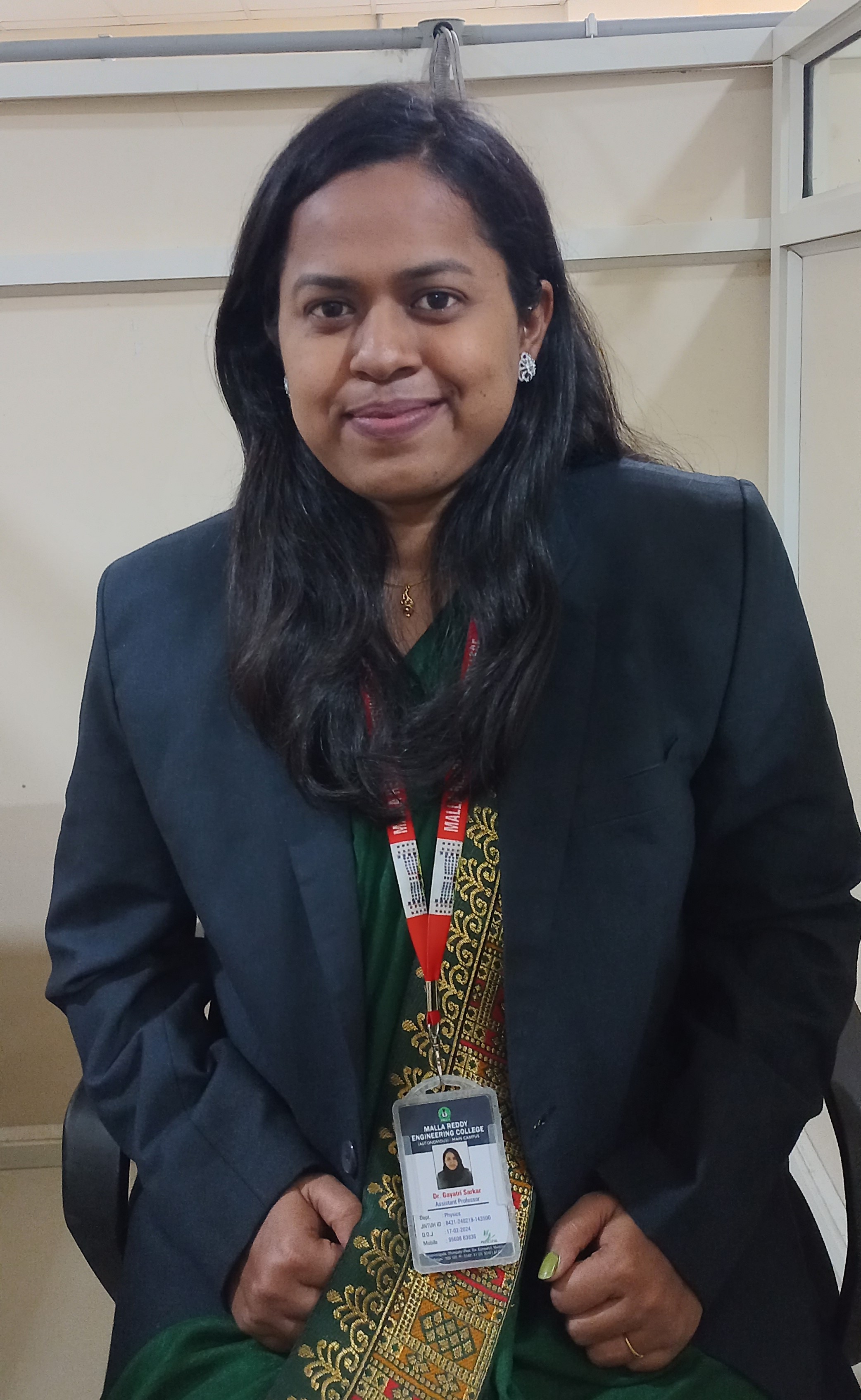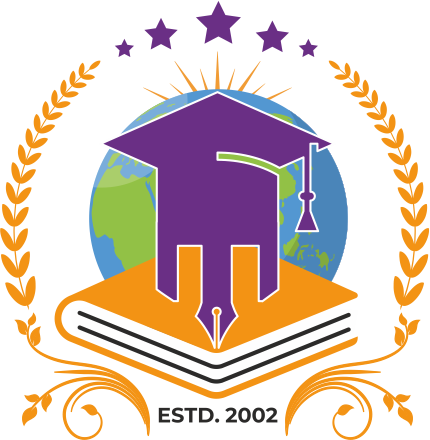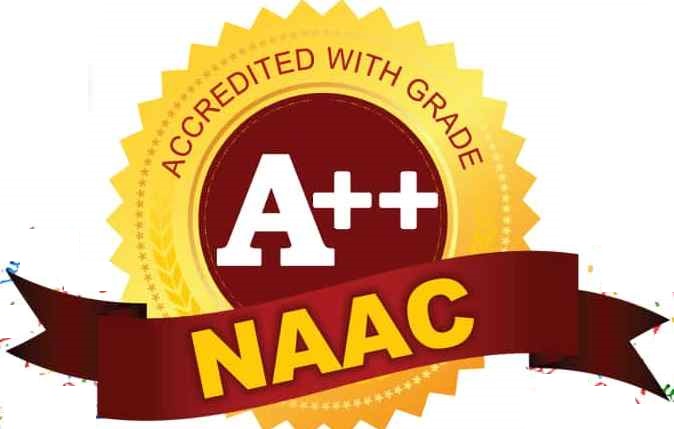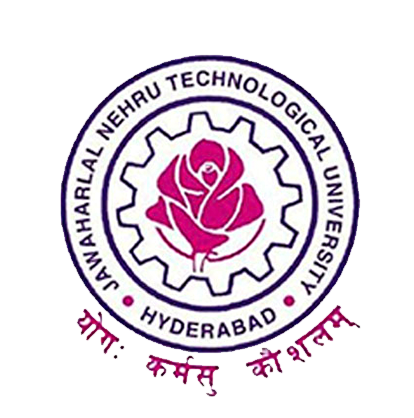Faculty Personal and Academic Profile
| Faculty Department | Humanities and Sciences (H&S) |

|
|
| Faculty Name | Dr. Gayatri Sarkar | ||
| Professional Email | |||
| Personal Email | gayatri11.sarkar@gmail.com | ||
| Registration Number |
Teaching / Work Experience
From the research point of view, my primary focus is on the dynamics of low-energy nuclear reactions involving fusion and fission, covering the whole mass range of the periodic table. This investigation is performed via a theoretical model named the Dynamical Cluster-decay Model (DCM) and ?-spectrometry. The DCM established on quantum mechanical fragmentation theory (QMFT), which further works on collective coordinates of mass asymmetry, where A1 and A2 stand for heavy and light fragments in the binary decay of CN, respectively, and the relative separation R. The relative separation R between two fragments may be written in terms of multipole deformations and the orientations of fragments. The decay cross-sections are computed using decoupled approximations to the relative separation R and ?-coordinate; the ?-coordinate is used to estimate the preformation probability (P0) by solving the time-independent Schrödinger equation at a fixed R-coordinate, and the penetration probability P is computed using the Wentzel-Kramers-Brillouin (WKB) approximation in terms of R-coordinates. This theoretical technique can be used to investigate several aspects of the decay dynamics of any nuclear process. These properties include diffuseness parameters, nuclear potentials, radii, deformations, orientations, angular momentum, binding energies, shell corrections, etc. This model investigates the significance of incident energy, entrance channel effects, shell effects, and pairing energy. All of this research is carried out in light of the experimental results.
With this model, I have published numerous scientific peer-reviewed papers on the research of total fusion, incomplete fusion, and fusion-fission in low-energy nuclear reactions. This work has been published in eight journal articles and seven conference papers. I will finish researching the role of binding energy and shell corrections on 6,7Li-induced reactions on 27Al and 64Zn medium-light targets. Along with this work, the role of the plane of the decaying fragments in the decay of 105Ag* is being studied, and sooner, it will come in the form of publication. Simultaneously, I completed the investigation of 7Li induced reaction on natIn target using ?-spectrometry, which has been proposed and performed by me and our research group at TIFR. This experiment has been carried out in the Pelletron facility of TIFR, which is an offline experiment, and the ?-spectrometry has been done using HPGe detectors. The related manuscript for communication is being processed. In my Ph.D. research, I learned the theoretical model DCM and the experimental investigation using ?-spectrometry to analyze the reaction mechanism involving the heavy-ion induced reaction over the entire periodic table in the low-energy region. Some nuclear properties are explored, while others are left to explore.
In the future, I hope to investigate reaction dynamics with other nuclear reaction properties such as pairing dynamics, shell structure, fission mass distribution, and so on, utilizing a well-developed theoretical model DCM. My research interest is also in the experimental investigation of the weakly-bound projectile, which can be accomplished soon. I was also a part of the online experiment performed at the 15UD Pelletron facility of Heavy Ion Reaction Analyzer (HIRA), IUAC, New Delhi, India. This experiment was accomplished for the reaction 37Cl+68Zn.
I am reflective and deliberate in my teaching, beginning with a philosophy based on constructivism and active learning theories. In general, active learning moves the focus of activity from the teacher to the student. This student-centered method advocates for multi-modal learning - listening, reading, writing, discussing, and problem-solving- and higher-order thinking tasks like analysis, synthesis, and critique. A constructivist approach to active learning considers the influence of a learner's constructions and mental filters and how knowledge is shaped as new information interacts with current information. This method capitalizes on a student's natural curiosity about the world and how things work; it advocates for discovery, hands-on experiences, project- and task-based learning, and cooperation.
In a comfortable setting, I use a conversational lecturing approach that invites open discussion, reasoned inquiries, and outcome-oriented innovation. Despite my easy and personable teaching style, I hold my pupils to the most excellent professional standards in their work. My demanding grading standards and high expectations are regularly mentioned in student reviews. They also appreciate my upbeat, friendly, and supportive demeanor. Seeing how many people use their new learning attitudes, values, and beliefs in their future studies and jobs is encouraging. My strong pedagogical foundation and teaching experience at the university level have also enabled me to make valuable contributions to our undergraduate and graduate programs in areas such as scientific research and innovation, curriculum development and assessment, accreditation compliance, and strategic planning. I like the difficulties and possibilities of teaching, and I will continue to prove my worth as a teacher and colleague during my tenure and beyond.
Other Achievements
1) Qualified CSIR-NET 2018.
2) Qualified GATE-2017. Teaching Achievements
|
||
| Current Designation | Assistant Professor | ||
| Area of Specialization | Nuclear Physics; Low Energy Nuclear Reactions; Gamma Spectroscopy | ||
| Joining Date | 19-02-2024 | ||
| Total Experience in this Institution | 2 Months | ||
| Total Experience in other Institutions | 11 Months |
Specialized Skills
Python, Research & Development, Team Spirit, Interpersonal Skills, ROOT, MATLAB, Public Speaking, Organizational Initiatives
|
|
| UG Qualifications | B.Sc | Graduation Year, University |
2014,
Maharshi Dayanand University Rohtak
|
| PG Qualifications | 0 | Graduation Year, University |
2016, University of Delhi
|
| PhD Qualifications | Completed | Graduation Year, University |
2023, Indian Institute of Technology Roorkee
|







